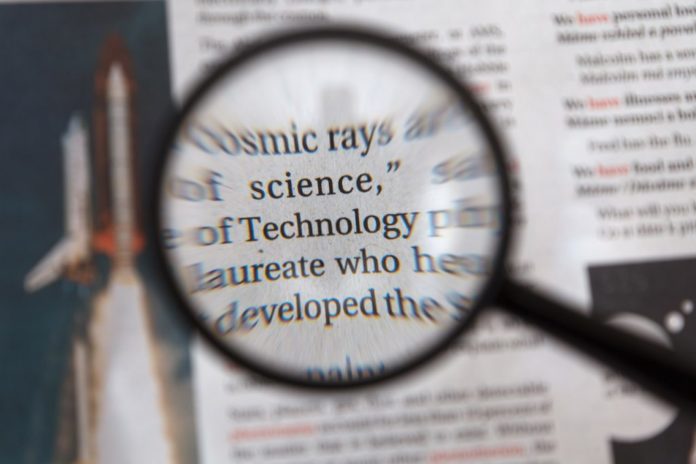Science and technology are two interconnected realms that have profoundly shaped human civilization. They have not only defined the course of human progress but continue to play a pivotal role in molding our present and future. This essay delves into the profound impact of science and technology on society, economy, environment, and our daily lives. It explores the historical evolution of these fields, discusses their contemporary relevance, and contemplates their future implications.
I. Historical Evolution
The Dawn of Science
Science has its roots in the earliest human endeavors to understand the world around us. From the observations of celestial bodies by ancient astronomers to the documentation of medicinal herbs by early healers, the pursuit of knowledge has always been an inherent part of human nature.
Technological Ingenuity
Technology, on the other hand, is the practical application of scientific knowledge. The invention of the wheel, the plow, and simple tools marked the birth of technology. These innovations significantly improved the quality of life for early human societies by enhancing their productivity and comfort.
The Renaissance and the Birth of Modern Science
The Renaissance period was a watershed moment in the evolution of science. Thinkers like Galileo Galilei and Sir Isaac Newton laid the foundation for modern physics and astronomy, while figures such as Leonardo da Vinci explored various scientific disciplines, from anatomy to engineering. This era witnessed a profound shift from traditional dogma to empirical inquiry.
The Industrial Revolution and Technological Advancements
The 18th and 19th centuries were characterized by the Industrial Revolution, a period that brought about radical technological transformations. Steam engines, the telegraph, and railroads revolutionized transportation and communication, enabling the mass production and distribution of goods.
The 20th Century: Science and Technology Converge
The 20th century saw an unprecedented convergence of science and technology. The discovery of the atom’s structure led to the development of nuclear technology, including nuclear power and the atomic bomb. Innovations in electronics and computing gave rise to the Information Age, altering the way people live and work.
II. Contemporary RelevanceMedicine and Healthcare:-
Modern medicine heavily relies on science and technology. The development of antibiotics, advanced surgical techniques, and diagnostic tools have significantly increased life expectancy and improved overall health.
Information and Communication
The digital revolution has transformed how people communicate and access information. The internet, smartphones, and social media have connected the world and revolutionized business, education, and entertainment.
Energy and Environment
Science and technology play a critical role in addressing environmental challenges. Renewable energy sources, like solar and wind power, offer sustainable alternatives to fossil fuels, helping combat climate change.
Space Exploration
Advancements in space technology have opened new frontiers for exploration. Missions to Mars and beyond are made possible through cutting-edge science and engineering, offering humanity a glimpse into the cosmos.
Economy and Industry
Automation and artificial intelligence are reshaping industries and the workforce. Robotics and machine learning have increased efficiency and productivity but also raised questions about employment and economic inequality.
III. Future ImplicationsArtificial Intelligence and Machine Learning:-
The continued development of artificial intelligence will impact various aspects of society. From autonomous vehicles to medical diagnosis, AI has the potential to enhance efficiency and revolutionize industries.Biotechnology and Genetics.
The field of genetics is rapidly advancing, with gene editing technologies like CRISPR-Cas9 holding the potential to treat genetic diseases and modify traits. This technology raises ethical and moral questions about human intervention in the genetic code.
Climate Change Mitigation
Science and technology will be critical in addressing the challenges of climate change. Innovations in clean energy, carbon capture, and sustainable agriculture will be key in reducing humanity’s environmental footprint.
Space Exploration and Colonization
Humanity’s expansion into space is on the horizon. Establishing colonies on the Moon and Mars will require cutting-edge technology and scientific innovation, opening new possibilities for the future.
Ethical and Social Implications
As science and technology advance, ethical and social considerations become more complex. Issues such as privacy, AI ethics, and biotechnological ethics will require careful consideration and regulation.
Conclusion:-
Science and technology are inseparable from the human experience, from our earliest ancestors’ rudimentary tools to the modern marvels of space exploration and artificial intelligence. Their impact is evident in every facet of our lives, shaping our present and defining our future. It is crucial that we navigate these developments thoughtfully, with a keen awareness of their profound implications. The story of science and technology is an ongoing narrative, and it is our responsibility to ensure it continues to serve humanity’s best interests.
By: Upama Sarma
Write and Win: Participate in Creative writing Contest & International Essay Contest and win fabulous prizes.
















